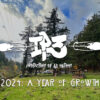|
Getting your Trinity Audio player ready...
|
In September of 2021, the Atlanta City Council approved the construction of a controversial ninety million dollar, tax paid police training facility at the site of the Old Atlanta Prison Farm, an abandoned prison complex located in Atlanta’s Weelaunee Forest (South River Forest). Weelaunee Forest is a 3500 acre green space situated inside Atlanta’s perimeter that conservationists and protectors have been working to preserve since the prison’s closure in 1990, and in recent months, efforts to protect the space have turned deadly. In the early morning hours of January 18th, 2023, Indigenous Forest Defender and Peaceful Protector, Manuel “Tortuguita” Teran was murdered by police during sweeps of Weelaunee People’s Park to clearcut over 100 acres of forest that makes way for the construction of Cop City. As tensions mount in the wake of Teran’s murder, so too has the city’s response to protectors showing up in opposition of the complex. Thirty-two protectors have been charged with domestic terrorism, and while corporate media would have you believe protectors are the problem, they won’t bother to inform you of the good work being done by community there on the ground.
As thousands turned out for the week of action with a music festival, rallies, direct actions and press conferences, the Atlanta Police Department and partnering agencies wasted no time in an attempt to silence their efforts. On Sunday March 5th, police mobilized near the anti-Cop City music festival with automatic weapons, flash grenades and other chemical crowd control weapons. In a video posted by Unicorn Riot, we see police pointing rifles into a bouncy house as festival goers rallied against the construction of the facility that would further militarize police in a working class black neighborhood, destroy hundreds of acres of the largest urban forest in the country, and continue its long legacy of racism since the stealing of the land from the Muskogee Creek peoples in 1830. With more than seventy percent of Atlanta residents opposed to the facility, the city council along with their corporate partners plan to move forward anyway, but the last thing the community needs is another colonial symbol of oppression and violence. What we need are symbols of hope and healing.
To understand the significance of the land for Forest Defenders, one must understand it’s long and troubling history. Until forcibly taken from tribes by the Indian Removal Act of 1830, the Muscogee Creek Nation called the Weelaunee Forest home for thousands of years. Underneath the remains of the abandoned and graffitied Old Atlanta Prison Farm lies Indigenous burial and ceremonial sites of generations of people before it, and the abuse of the land doesn’t stop there. Through the latter part of the nineteenth century, the location became what some have called “the finest plantation in the county,” and a famous Civil War battle. Fast forward to 1920 and through most of the twentieth century, the site was operated as a low-security prison farm that housed mostly non-violent offenders. A site back in chain gang times where black inmates were lynched and incarcerated for minimal offenses such as whistling at white women or breaking curfew; an extension of Jim Crow and segregation laws that have plagued black and marginalized communities for generations. Many who experienced it recall the prison as a sort of slave farm, who point to accounts of rape, torture, and violent racism towards its black inmates, and it’s clear the land and majority black communities of Atlanta deserve more.
In the modern era of exercising our inherent rights to environmental justice, cultural livelihood, and self determination, where it is our obligation to speak, to inform, and to assemble in protest of injustice, their violence continues when we come together and speak out. In the years since the closure of the Old Atlanta Prison Farm, community members have come together to reimagine what the space could become, and efforts to establish a more equitable and accessible space for residents of Atlanta have largely been ignored. As the city gets closer to clear cutting hundreds of acres of Atlanta’s last remaining forests, it is our responsibility to protect it, yet the city is using felony level domestic terrorism charges to dissuade us. For Manuel Tortuguita Teran, the police have become judge, jury, and executioner, and if history repeats itself we fear their crimes upon Forest Defenders will go unchecked. For those either in support of or on the fence about the new urban warfare campus, it’s simple really. We don’t need another symbol of militarized violence in our communities. What we need is right beneath our feet.
In Solidarity,
Nic Sanford Belgard
Indigenous Peoples Power Project









